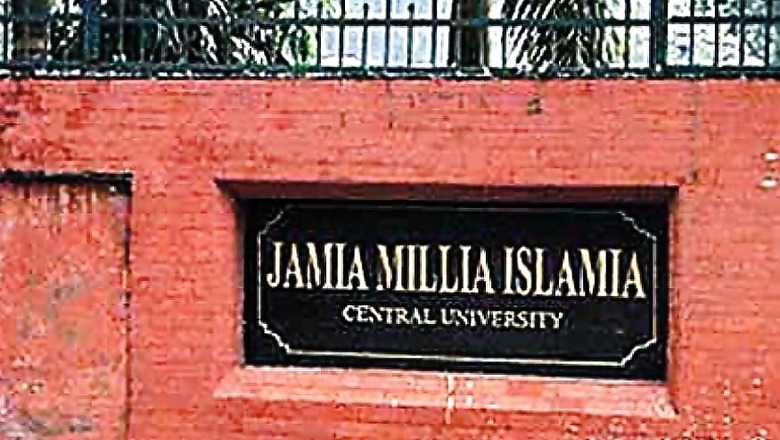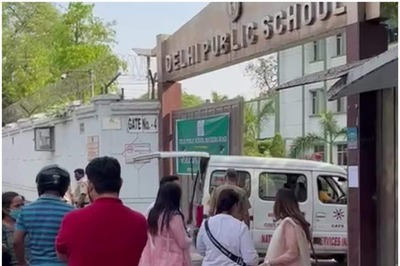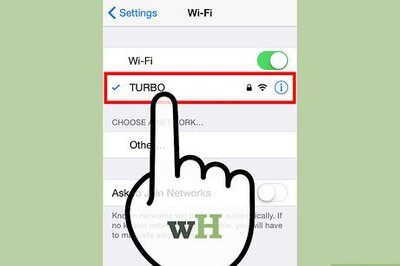
views
Jamia Millia Islamia’s guidelines for conducting ‘Online Proctored Mode of Examination’ have disappointed students, who say ground realities of digital disparity and inequalities prevalent in our society have not been considered.
Jammu and Kashmir Students Association wrote to Minister of Education Ramesh Pokhriyal Nishank and Jamia VC Najma Akhtar on Friday asking that online mode of exams be scrapped as this puts the burden of arranging the infrastructure on students.
Under the guidelines released on Thursday, students have been asked to arrange computers or laptops, internet-connection, and uninterrupted power supply on their own for the three-hour duration of the exam.
Students are allowed to appear for the examinations from their chosen place of convenience. They will be required to appear in the examination using the latest version of firefox browser, a Windows laptop/PC with a stable internet-connection and web camera.
Students would also need a smartphone to click images of their hand written answers and for uploading the same. These are mandatory requirements to appear for the online-proctored examination of the university.
“Only PC/Laptop shall be permitted to appear in examinations not the smart mobile phone. However, smartphones with cameras may be used to click the pic of the answer sheet and upload the same on the portal,” the guidelines state.
The guidelines assume all students have “privilege of privacy” as it expects “Students to take the test strictly from a separate room with no other person present in the room during the entire duration of the examination. Any presence of a second person in the room anytime during the test duration will be fit ground for the cancellation of the examination of the student.”
In a statement, the spokesperson of J&K Association Nasir Khuehami said “These guidelines reinforce elitism in our education system and neglects the realities of the students from marginalized communities that cannot afford the laptops and PCs’.
“Exams and education should never be a privilege. But this new diktat makes education a privilege instead of pushing it as a right. This will lead to mental health issues,” he said.
Students in Jamia come from backward districts of Uttar Pradesh, Bihar, Madhya Pradesh, J&K and other southern states, he added.
“In Kashmir we face unavailability of high speed internet-connectivity. This has hampered and halted the process of online classes of students. Due to continuous ban of high speed-internet connectivity (4G Services), Kashmiri students would not be able to attend exams.”
In another letter to the Vice Chancellor, Jamia students said that due to lack of internet-connectivity, “more than 60% of students couldn’t even attend online classes as is reflected in the class attendance. Many have given their presentation over phone calls. Concerns over access to stable internet-connection along with uncertain power cuts make proctored mode of online exams highly unfair.”
The software used for proctored-examination requires downloading of browser extensions, and are not supported on mobile phones. This makes access to laptops/PC imperative.
“For those students who used mobile phones or tablets to attend online classes, taking exams in the proctored mode will not be possible. Even if the software is compatible with mobile phones, students will be unable to scan their answer sheets while also simultaneously providing access to their cameras to the invigilator,” said Jamia students in a letter to VC.
They suggest that examinations should be assignment-based. Jamia administration listened to the students today and has assured that examination will happen with ease.
Read all the Latest News, Breaking News and Coronavirus News here




















Comments
0 comment